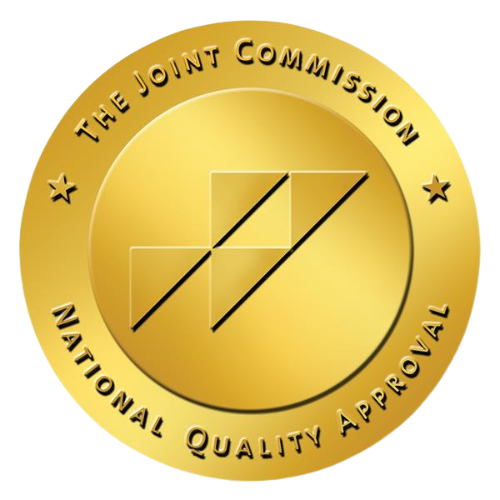ER nurses will continue to find that the need for their abilities translates well into the booming healthcare travel market, presenting many opportunities for growth and a better work/life balance.
Working as an Emergency Room nurse means knowing how to work on your toes— primed to hit the ground running when needed. When it comes to becoming a traveler, these adaptive skills can come in handy to help you thrive. Reliance on emergency department care continues to grow, but so does the national nursing shortage. ER nurses will continue to find that the need for their abilities translates well into the booming healthcare travel market, presenting many opportunities for growth and a better work/life balance. Are you interested in taking the leap into traveling healthcare, or are new to the profession in general? Here are a few things you need to know to find your best fit.
What is an ER nurse?
Let’s begin with the basics. ER nurses care for patients suffering from severe medical conditions, trauma, and injuries. Though a large part of their role is devoted to urgent patient care for patients experiencing medical emergencies, some patients need less critical care and still fall under their responsibility.
Duties of an Emergency Room Nurse
Many of the tasks performed by emergency room nurses are specialized, while others are like standard nursing duties. ER nursing responsibilities typically include:
- Leading emergency response teams
- Assessing/triaging a patient’s need
- Prioritizing care based on the patient
- Reviewing medical histories
- Updating electronic medical records
- Carrying out treatment plans
- Assisting with diagnostic procedures and tests
- Using advanced equipment to monitor and treat patients
- Cleaning and dressing wounds
- Administering medications
- Discharging patients from the ER when they are stable
ER vs. emergency care
Not all emergency nurses work in ERs. Like many areas of healthcare, emergency nurses can be broken down into specialized subcategories. Nurses specializing in emergency care can work as critical-care transport nurses, disaster response, on search-and-rescue teams, and in poison control centers, burn centers, prisons, and different military branches.
Similarly, while emergency room, intensive care unit (ICU), and critical care nurses (CCN) care for and treat patients in critical conditions, their roles differ. An ER nurse prioritizes care, stabilizes a patient, and then moves on to the next patient. ICU nurses and CCNs plan and provide long-term care to help patients recover from critical illnesses. They may also treat surgery patients as they undergo particularly risky operations.
How to become an ER nurse
Education & Licenses
A nurse who wants to work in the ER’s fast-paced setting can generally move into that role straight out of nursing school. The right temperament and the required nursing education are the most essential qualifications for working in the emergency room. While there is no specialized training or certification to become an emergency room nurse, there are some basic requirements that must be met to become an ER nurse, including:
- Earn an associate degree in Nursing (ADN) or a Bachelor of Science in Nursing (BSN).
- Pass the NCLEX-RN exam to become a licensed RN.
Many states also now recognize the Nurse Licensure Compact (NLC), which allows you to apply for a multistate license to practice in compact-participating states without obtaining additional licensure.
Additionally, it’s preferred and often required to have hands-on experience before focusing on a specialty area. Once a RN has two years of experience in the ER, they can pursue the Certified Emergency Nurse (CEN) credential that the Emergency Nurses Association offers. This healthcare certification ensures confidence in colleagues, patients, and employers in a nurse’s knowledge of ER best practices.
Skills & Requirements
As always, the most successful nurses blend their hard and soft skills to care for patients. These skills and traits include:
- American Heart Association Basic Life Support (BLS) certification.
- Advanced Cardiac Life Support (ACLS) certification.
- Certified Emergency Nurse (CEN) and Crisis Prevention and Intervention (CPI) certification are advantageous.
- Attention to detail.
- Mental resilience in high-stress situations.
- Good organizational skills.
- Excellent listening and communication skills.
Where traveling ER nurses work
As of 2022, Indeed lists the top earning cities for ER nurses as:
- New York, NY
- Baltimore, MD
- San Antonio, TX
- Houston, TX
- New Orleans, LA
Pros of becoming an ER nurse
Becoming an ER nurse, travel or otherwise, is a gratifying profession. Some perks of the job are being on the front line, directly impacting patient lives. When the emergency is over, patients can often reflect on that first friendly face that got them through a rough time. Usually, that friendly face is a helpful and caring emergency nurse— you. Additionally, working in the ER provides a multitude of learning opportunities. If you’re hoping to take your career to the next level, emergency room nursing is a great way to expand your medical expertise.
Also, we have to say it— the money is excellent. According to Indeed, the national average salary for an ER nurse as of August 2022 is around 123,000 per year, with an expectation that the more experienced a nurse, the higher their salary will grow depending on location. ER nurses can also earn compensation well beyond their base salary by signing on for shift differentials, overtime, and on-call hours.
Things to consider
As expected with a high-stakes environment, there are things to consider if you’re considering becoming a traveling emergency nurse.
- High-stress, chaotic work environment: Emergency room nurses typically work long shifts, and the emergency department never closes, making burnout rates for emergency room nurses high.
- Coping with patients frequently suffering from traumatic injuries, significant disability, or death: Unfortunately, not everyone can be saved. Emergency room nurses work with a team of providers to do everything in their power to save lives. However, sometimes patients don’t make it. This can be a complicated thing to deal with, so emergency room nurses must learn to be emotionally intense in these situations.
- Managing families that are often fearful, panicked, and demanding: The patients aren’t the only ones in your care in this department. Some families can react to this emotionally charged environment by lashing out at the healthcare workers trying to help them.
Working with Blu Med
After this crash course, does being a traveling ER nurse sound like a fit for you? Although most hospitals require two years of experience to travel as an ER nurse, Blu Med is here to help you make the transition when you’re ready. Choosing the right staffing partner can be tricky and we’re here to answer all your questions. We understand that there are endless choices when it comes to healthcare staffing, so we appreciate anyone who puts their faith in us to get them where they want to go, the right way. Let us find the perfect placement to help nourish growth not just professionally but personally as well.
Get started on your travel nursing career with Blu Medstaff today, and don’t forget about that referral bonus!









